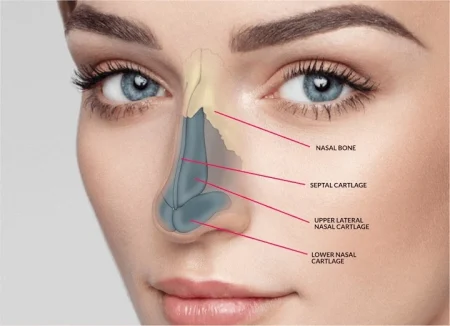The Wake Forest PA Program stands out as one of the premier Physician Assistant (PA) programs in the United States, known for its rigorous curriculum, innovation in medical education, and impressive graduate outcomes. Located in North Carolina, this program is part of the Wake Forest University School of Medicine and is highly sought after by aspiring healthcare professionals. Whether you’re looking to deepen your clinical expertise or launch a career in patient-centered care, understanding what makes the Wake Forest PA Program exceptional is key to making an informed choice.
Overview of the Wake Forest PA Program
What Is the Wake Forest PA Program?
The Wake Forest PA Program is a full-time, 24-month master’s level course designed to train students to become compassionate and competent physician assistants. It combines academic excellence with practical experience, and its small class sizes foster a collaborative learning environment. Students graduate with a Master of Medical Science (MMS) degree.
Accreditation and National Recognition
Accredited by the Accreditation Review Commission on Education for the Physician Assistant (ARC-PA), the Wake Forest PA Program is consistently ranked among the top PA programs in the U.S. by U.S. News & World Report. This reflects its commitment to delivering evidence-based and innovative medical education.
Unique Features of the Wake Forest PA Program

Problem-Based Learning (PBL)
One of the defining aspects of the Wake Forest PA Program is its use of Problem-Based Learning (PBL). Unlike traditional lecture formats, PBL puts students in small groups to work through real-world clinical cases. This model promotes critical thinking, collaboration, and long-term knowledge retention—skills vital for any healthcare provider.
Early Clinical Exposure
The program emphasizes early and continuous clinical exposure, allowing students to interact with patients and practice clinical skills from the very beginning. By the second year, students transition into full-time clinical rotations across a variety of settings, including family medicine, internal medicine, pediatrics, and emergency care.
Focus on Community and Rural Health
Wake Forest’s curriculum is deeply embedded in the values of community health and service. The program prepares students to serve not only urban but also rural and underserved populations—an increasingly important aspect of American healthcare.
Curriculum Breakdown
Didactic Year
The first year focuses on foundational knowledge and PBL sessions, covering subjects like:
- Anatomy and physiology
- Pharmacology
- Clinical medicine
- Medical ethics and professionalism
- Evidence-based medicine
Lab-based skills training also supplements the theoretical curriculum, equipping students with essential hands-on techniques.
Clinical Year
The second year involves 11 months of supervised clinical practice experiences (SCPEs), including core rotations and electives. These rotations are conducted in various hospitals and clinics throughout North Carolina and surrounding states.
Core rotations include:
- Family Medicine
- Internal Medicine
- General Surgery
- Pediatrics
- Women’s Health
- Emergency Medicine
- Psychiatry
Admissions Requirements and Process
Academic Prerequisites
Applicants must have completed a bachelor’s degree and the following prerequisites:
- Biology (with lab)
- Chemistry (including Organic or Biochemistry)
- Anatomy and Physiology
- Statistics or College Math
- Medical Terminology (recommended)
A minimum GPA of 3.0 is required, but competitive applicants often exceed this.
Clinical Experience
A minimum of 1,000 hours of direct patient care experience is required. This can include roles such as EMT, medical assistant, CNA, or phlebotomist. Wake Forest values quality and diversity in healthcare experience.
GRE Scores and CASPA Application
Applicants must submit GRE scores through the Central Application Service for Physician Assistants (CASPA). Letters of recommendation, a personal statement, and documentation of clinical hours are also mandatory components of the application.
Interview Process
Selected candidates are invited for a rigorous interview process, typically held on-campus. The interview assesses communication skills, critical thinking, and cultural competency.
Career Opportunities for Wake Forest PA Graduates
Graduates of the Wake Forest PA Program enjoy high pass rates on the PANCE (Physician Assistant National Certifying Exam) and strong job placement within six months of graduation. Career paths include:
- Primary Care
- Surgical Specialties
- Emergency Medicine
- Psychiatry
- Hospital Medicine
Wake Forest graduates are highly sought after due to their clinical competence and patient-centered approach.
Student Support and Campus Resources

Mentorship and Academic Support
Wake Forest provides extensive academic and personal support, including tutoring, faculty mentorship, and peer advising. Students benefit from a tight-knit community that fosters personal growth and success.
Facilities and Learning Technology
The Bowman Gray Center for Medical Education offers cutting-edge labs, simulation centers, and collaborative spaces. Students have access to electronic health record simulators, anatomical models, and digital learning platforms.
Financial Aid and Scholarships
The program offers several merit-based and need-based scholarships, along with access to federal student loans and work-study programs. Financial literacy sessions help students manage debt effectively.
Pros and Cons of the Wake Forest PA Program
Pros
- PBL curriculum enhances clinical reasoning
- Early patient contact
- Nationally ranked and accredited
- Emphasis on community and rural care
- Excellent facilities and support
Cons
- Competitive admissions process
- Intensive workload
- Requires relocation for some applicants
Testimonials from Students and Alumni
Many alumni credit the Wake Forest PA Program with transforming their lives and careers. One recent graduate noted, “The PBL curriculum challenged me to think like a clinician from day one. I felt confident and prepared during my clinical rotations and job interviews.”
Another added, “The program’s emphasis on underserved populations aligned perfectly with my passion for rural healthcare.”
FAQs
What is the ranking of the Wake Forest PA Program?
The Wake Forest PA Program is consistently ranked among the top 10 PA programs in the U.S., recognized for academic rigor and graduate outcomes.
How long is the Wake Forest PA Program?
The program duration is 24 months, consisting of one year of didactic coursework followed by a year of clinical rotations.
Do I need healthcare experience to apply?
Yes, a minimum of 1,000 hours of direct patient care experience is required for application eligibility.
What kind of clinical rotations are offered?
Students complete core rotations in family medicine, pediatrics, surgery, and more. Elective rotations allow exploration of specialties like cardiology or dermatology.
Is the Wake Forest PA Program hard to get into?
Yes, it’s highly competitive, with a strong preference for applicants who exceed minimum GPA and clinical hour requirements.
The Wake Forest PA Program is a beacon of excellence in the world of healthcare education. Its unique PBL model, early clinical exposure, and community-focused curriculum make it a top choice for those pursuing a career as a Physician Assistant. With its competitive admissions, exceptional training environment, and outstanding career placement, this program offers the ideal blend of challenge and opportunity for the future healthcare leaders of tomorrow.








